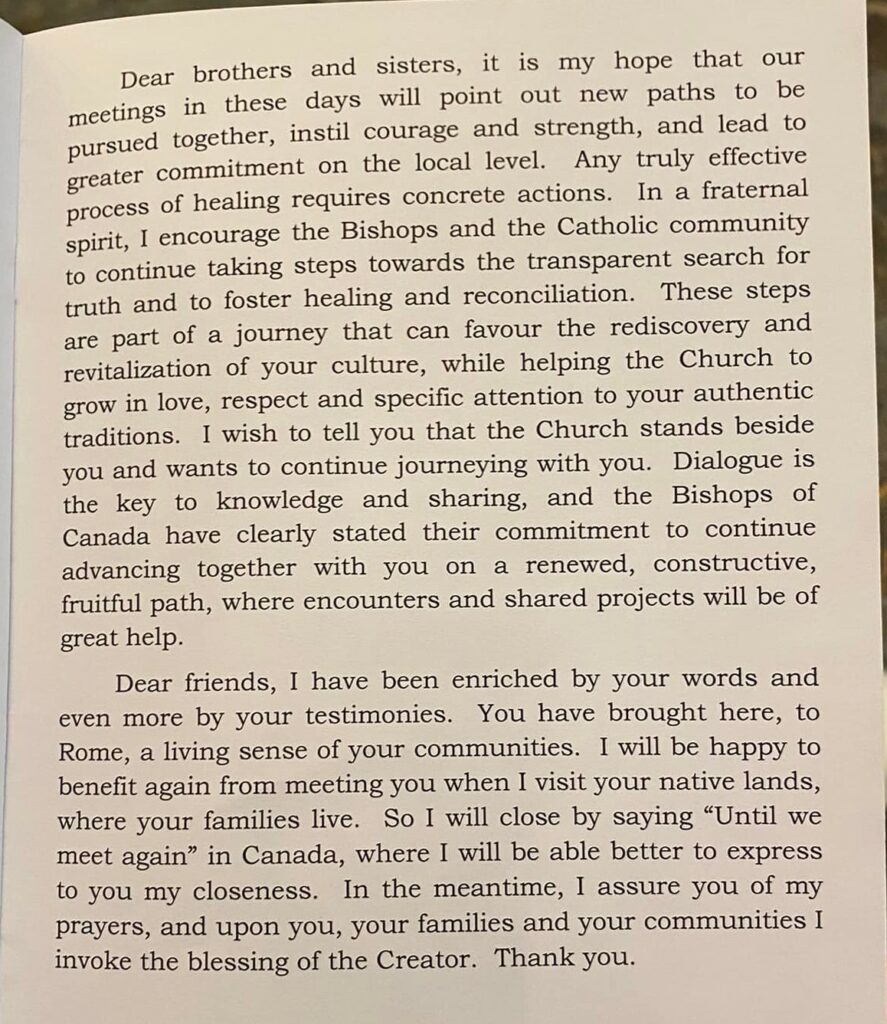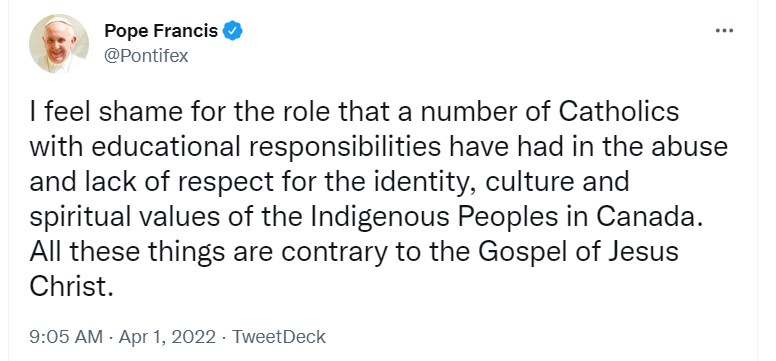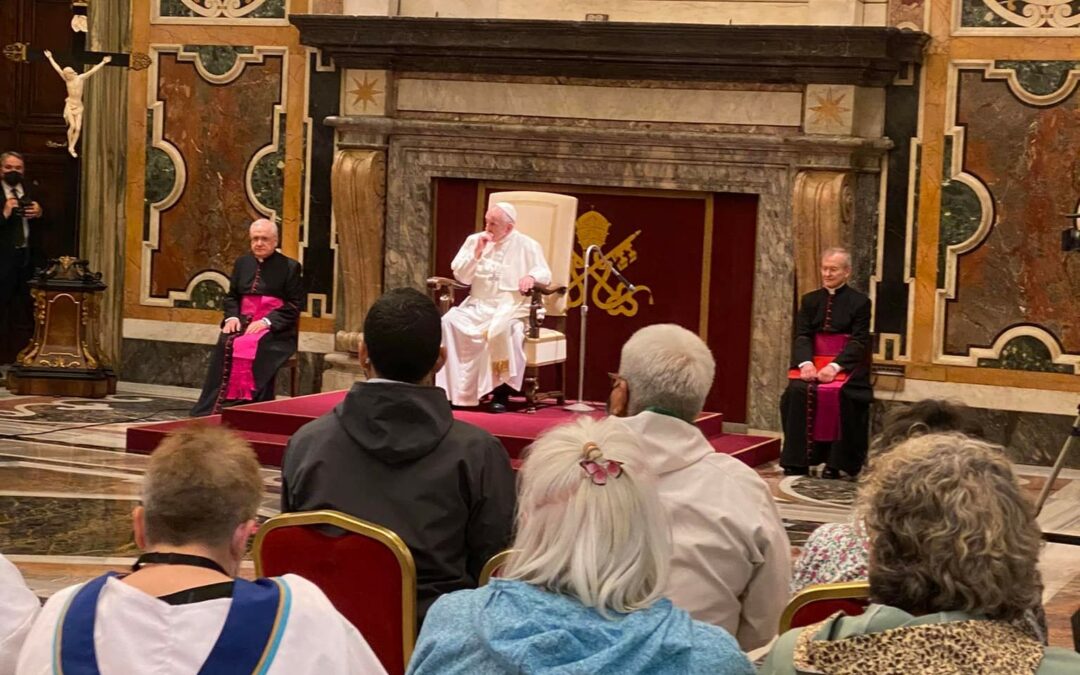“For the deplorable conduct of those members of the Catholic Church, I ask for God’s forgiveness and I want to say to you with all my heart: I am very sorry.”
That is what Pope Francis told First Nations, Inuit and Metis leaders and delegates in a general audience at the Vatican Friday.
Leaders, residential school survivors and supporters travelled to Rome this week, seeking the Pope’s apology for the Catholic Church’s involvement in residential schools, but also to invite the Pontiff to Canada to express the Church’s regret.
Pope Francis accepted the invitation for July, yet details of the visit were not released.
He expressed that he was ashamed and indigent of what these children had to endure.
“The apology that we received today is absolutely historic and so meaningful to so many people. This opens the door for us to continue to move forward on our healing journeys. And it opens the door for us to continue to fight for action,” said Metis National Council President Cassidy Caron.
Prior to this week’s journey, many in the delegation did not feel as if an apology would be delivered, believing the Pope would listen and reflect on what he was told, but that an apology would come when he came to Canada.
“We accept this apology as a gesture of good faith that acknowledges he will come to our home and to visit with our families to formally apologize to all our family members. This day is very special. Finally, we’re going to be able to begin to put some closure,” Assembly of First Nations Regional Chief Gerald Antoine said.
The Pope encouraged the Bishops and the Catholic community to continue to take the steps toward the transparent search for truth and to foster healing and reconciliation.
He said the Church stands beside Indigenous Peoples and wants to continue on a shared journey.
“We are here to articulate as clearly as we possibly can, about what the Catholic Church still needs to do to ensure that there is truth, there is justice, there is healing and there is reconciliation, in regards to the role that the Catholic Church played within the residential school system in Canada,” explained Inuit Tapirit Kanatami President Natan Obed.

(A photo of a written statement provided to the delegation, courtesy of the FSIN Facebook page.)
Pope Francis official Twitter handle @pontifex sent out a tweet Friday morning with the same sentiment.

Reaction from other Indigenous leaders and the Prime Minister
Indigenous people across the country are providing their reaction to the historic apology
The Honourable Murray Sinclair, former senator and former chair of the Truth and Reconciliation Commission, says the apology puts the church on a better path but says there is still work to be done.
“It allows Catholics to return to the strength of their faith. The hope, faith, justice, and truth that Survivors have sought for so long are indeed Catholic values. Now is the time to return to those values and learn from them as we walk forward together on the path of reconciliation,” said Sinclair in a statement. “On the strength of this historic acknowledgement, the Church must push forward to address deniers within their congregations. The stories of residential school Survivors belong in Church services and Sunday schools. It was a great injustice that Catholics – and all people – must learn from.”
The following is part of a statement from Prime Minister Justin Trudeau:
“Today’s apology is a step forward in acknowledging the truth of our past. We cannot separate the legacy of the residential school system from the institutions that created, maintained, and operated it, including the Government of Canada and the Catholic Church. Today’s apology will resurface strong emotions of hurt and trauma for many. The government will continue to support Indigenous communities across the country with the funding and resources they need to continue to search for unmarked burial sites, uncover the truth of what happened at residential schools, and continue on their healing journey.”
The Métis Nation-Saskatchewan echoed what a lot of Indigenous leaders have said and hope for tangible action to come in the wake of the apology.
“An apology has to have substance and hopefully support a legacy for our future generations. Today’s apology must be followed by tangible and real action for our citizens,” said MN–S President Glen McCallum in a statement.
(Top photo courtesy of the FSIN Facebook page.)
